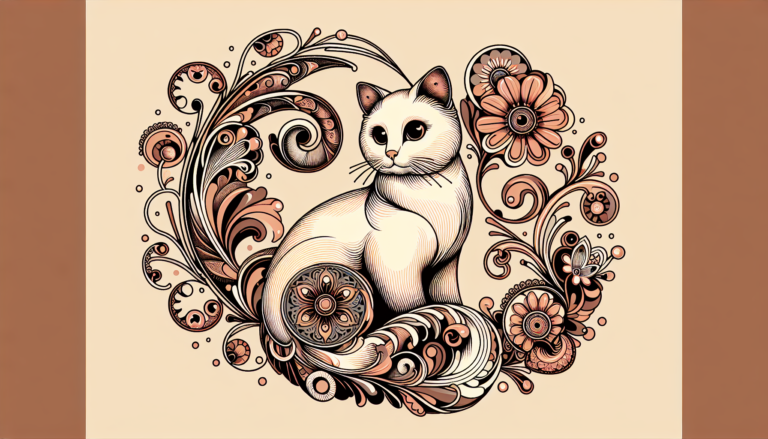Cats Diarrhea: Tips and Solutions for Feline Health
At Cat Karma Creations, we recognize that cats diarrhea can be a worrying and upsetting problem for pet parents. This article aims to offer insight into the common causes, symptoms, and management of cats diarrhea. Additionally, we will share tips on prevention and when it is crucial to consult your vet. By the end of this article, you’ll have a better understanding of ensuring your cat’s well-being and vitality.
Common Causes of Cats Diarrhea
Dietary Adjustments
Cats are known for their delicate systems, and abrupt dietary changes can result in cats diarrhea. Introducing a new food can disrupt your feline’s digestive system, leading to loose stools and discomfort. To prevent this, introduce dietary changes slowly over a period of 7 to 10 days. Mix the new food with the old gradually to help your furry friend adjust.
Opt for premium, nutritious cat food to avoid digestive issues. Low-quality meals often contain fillers and preservatives that may irritate your pet’s digestion. If your cat encounters digestive troubles, consider exploring hypoallergenic or sensitive stomach diets. While celebrating feline wellness, our cat-themed jewelry can bring joy and happiness to cat lovers.
Parasites’ Impact
Worms, fleas, and ticks can trigger cats diarrhea by infesting their intestinal tract, leading to weight loss and bloating. Routine deworming and flea protection play vital roles in maintaining intestinal health. Should you notice signs of parasite infestation, consult a vet who can advise the most suitable treatment, like deworming medications.
Infectious Causes
Cat diarrhea can result from viral, bacterial, or fungal infections. Viral infections such as feline panleukopenia cause severe symptoms, while bacterial causes include salmonella. Fungal infections like histoplasmosis could also be potential culprits.
Timely veterinary intervention is critical if you suspect an infection. Vets can conduct diagnostic tests to pinpoint the issue and prescribe tailored treatments like antibiotics. Addressing infections early ensures your cat stays healthy.
Stress Consequences
Environmental stress is another contributor to cats diarrhea. Changes like moving homes, welcoming a new pet, or loud environments can cause digestive upset leading to diarrhea and vomiting.
Mitigate stress by ensuring a secure and comforting space for your pet. Maintain routine schedules and consider calming supplements or pheromone sprays. These strategies can provide relief and prevent stress-induced diarrhea.
Recognizing Symptoms of Cats Diarrhea
Frequent Loose Stools
The hallmark symptom of cats diarrhea is often frequent loose stools. Watery or unformed stools signal possible digestive issues. Monitor stool consistency and frequency, which typically is once or twice a day. Any deviation signals a potential problem requiring attention.
Vomiting and Lethargy
An upset stomach can also manifest as vomiting and lethargy in cats experiencing diarrhea. Frequent vomiting warrants a veterinary visit, especially if blood is present.
Lethargy can accompany diarrhea, indicating your cat is not feeling well. If exhibiting signs like reduced energy, seek veterinary advice.
Dehydration and Weight Concerns
Diarrhea increases dehydration risks, particularly when accompanied by vomiting. Symptoms include sunken eyes, dry gums, and reduced skin elasticity. Ensure your cat stays hydrated or seek veterinary care if signs of dehydration appear.
Weight loss can also arise from cats diarrhea. A decrease in weight necessitates a vet’s evaluation for a thorough diagnostic and treatment plan.
Addressing Cats Diarrhea
Medication Solutions
Over-the-counter treatments can alleviate cats diarrhea. Anti-diarrheal medicines or probiotics firm stools and restore gut flora balance. Consult your vet for guidance to avoid risks.
Home Remedies
Bland diets with simple proteins like boiled chicken can soothe upset stomachs. Short fasting periods might also help mild cases recover.
Monitor progress and revert to bland diets post-fasting. Continued symptoms indicate the need for professional thoughts.
Veterinary Intervention
Some diarrhea cases require professional veterinary assistance. Persistent symptoms accompanied by fever or lethargy need comprehensive diagnostics like blood work or imaging. Treatment plans involve medications, specialized diets, or fluid rehydration as required.
Preventing Cats Diarrhea
Nutritious Meals
High-quality meals suited to your cat’s individual needs prevent digestive troubles. Avoid table scraps or human foods, which contribute to issues.
Adjust diets slowly to accommodate your cat’s digestion sensitively.
Vet Check-ups
Regular veterinary appointments are crucial in early issue detection, routine exams, and preventive measures such as deworming and vaccinations.
Managing Stress
Stress mitigation greatly influences preventing cats diarrhea. Aim for a calm environment, with calming aids if stress persists.
Factors Comparison: Diarrhea Triggers
| Aspect | Diet Adjustments | Parasites | Infections | Stress |
|---|---|---|---|---|
| Causes | New food | Worms, fleas | Viral, bacterial | Relocation, new pet |
| Symptoms | Loose stools | Bloating | Fever, tiredness | Vomiting |
| Management | Gradual food change | Deworming | Antibiotics | Calming sprays |
| Prevention | Quality diet | Flea control | Vaccinations | Stress-free space |
Essential Tips
- Cats diarrhea can spring from diet, infections, or stress, each needing distinct prevention.
- Watch for symptoms like frequent stool changes.
- Treatment options exist both over-the-counter and naturally.
- Regular vet visits foster a healthy lifestyle.
- Consult professionals as necessary for persistent or escalating signs.
Popular Quote
“A cat improves the garden wall in sunshine, and the hearth in foul weather.” – Jeffrey Farnol
surprising Statistic
About 10% of cats will experience diarrhea at some stage, according to the ASPCA, highlighting the significance of appropriate care and prevention.
Three Actionable Tips
- Slow Diet Changes: Adjust diet gradually over one to two weeks.
- Deworming Schedule: Regularly deworm to deter parasitic infections.
- Minimize Cat Stress: Create comfortable spaces to keep your cat composed.
Curious Concerns About Cats Diarrhea
Key Causes?
Common issues include dietary shifts, parasites, infections, and stress. New foods disrupt digestion, parasites cause infestations, and environmental shifts contribute to stress.
Recognizing Diarrhea?
Notice stool texture changes, along with symptoms like vomiting or lethargy, to identify diarrhea.
When to Vet?
Persistent symptoms alongside vomiting or other issues warrant veterinary evaluation to diagnose root causes.
Final Musings on Cats Diarrhea
Understanding and managing cats diarrhea involves identifying causes, treatments, and preventive actions. Stay well-informed to support your cat’s health, consulting vets as needed. Visit us for more feline-loving products and resources at Cat Karma Creations and connect with us on our social media for further resources.

